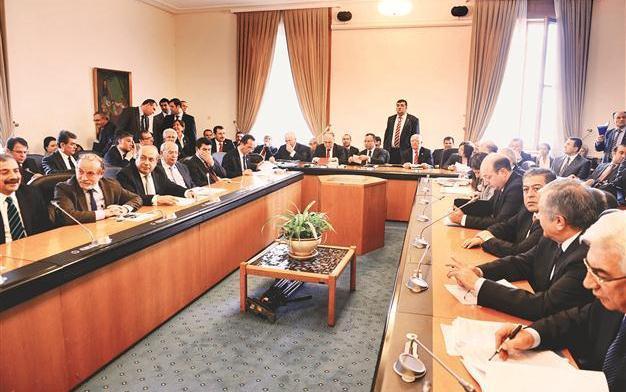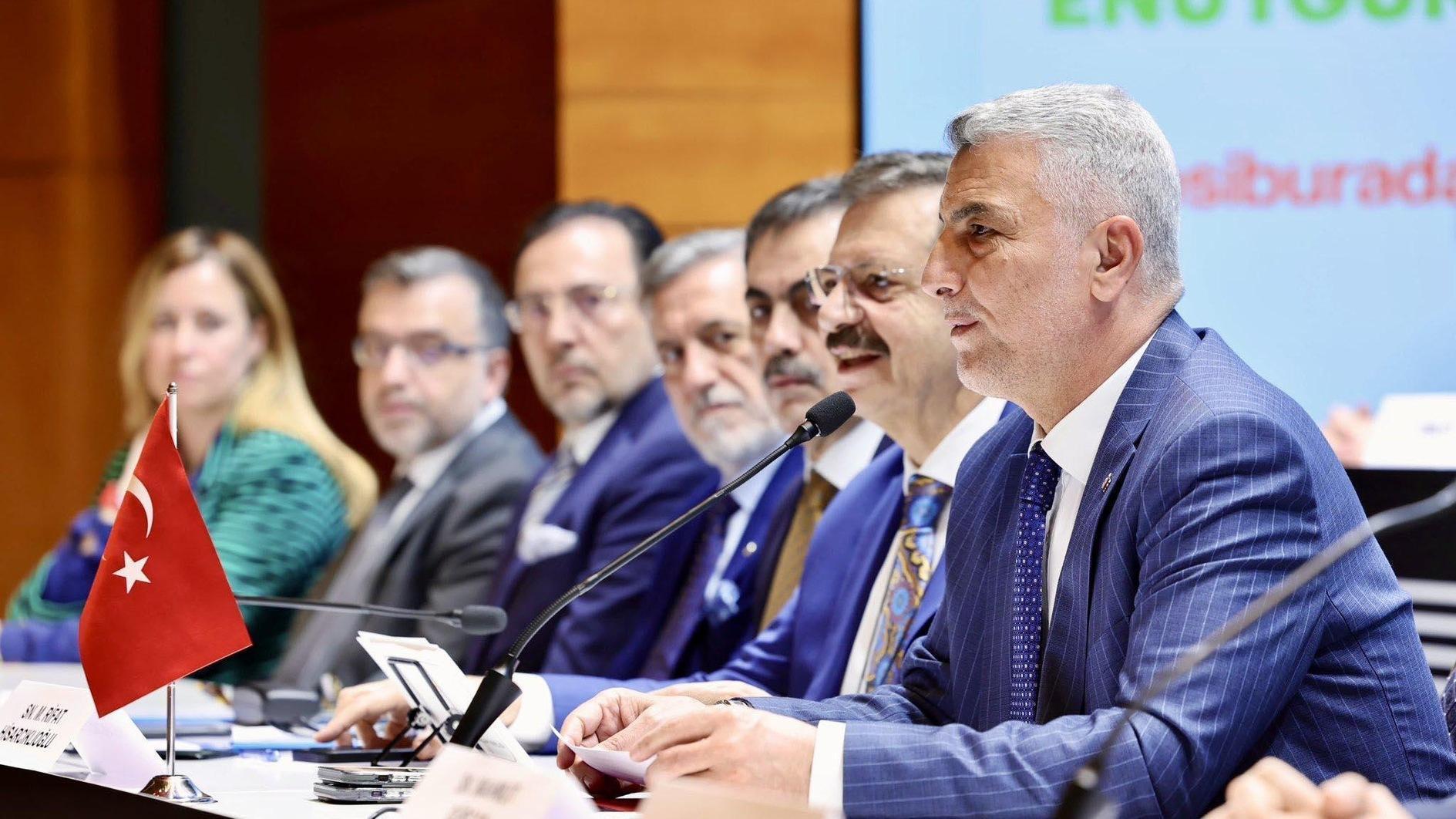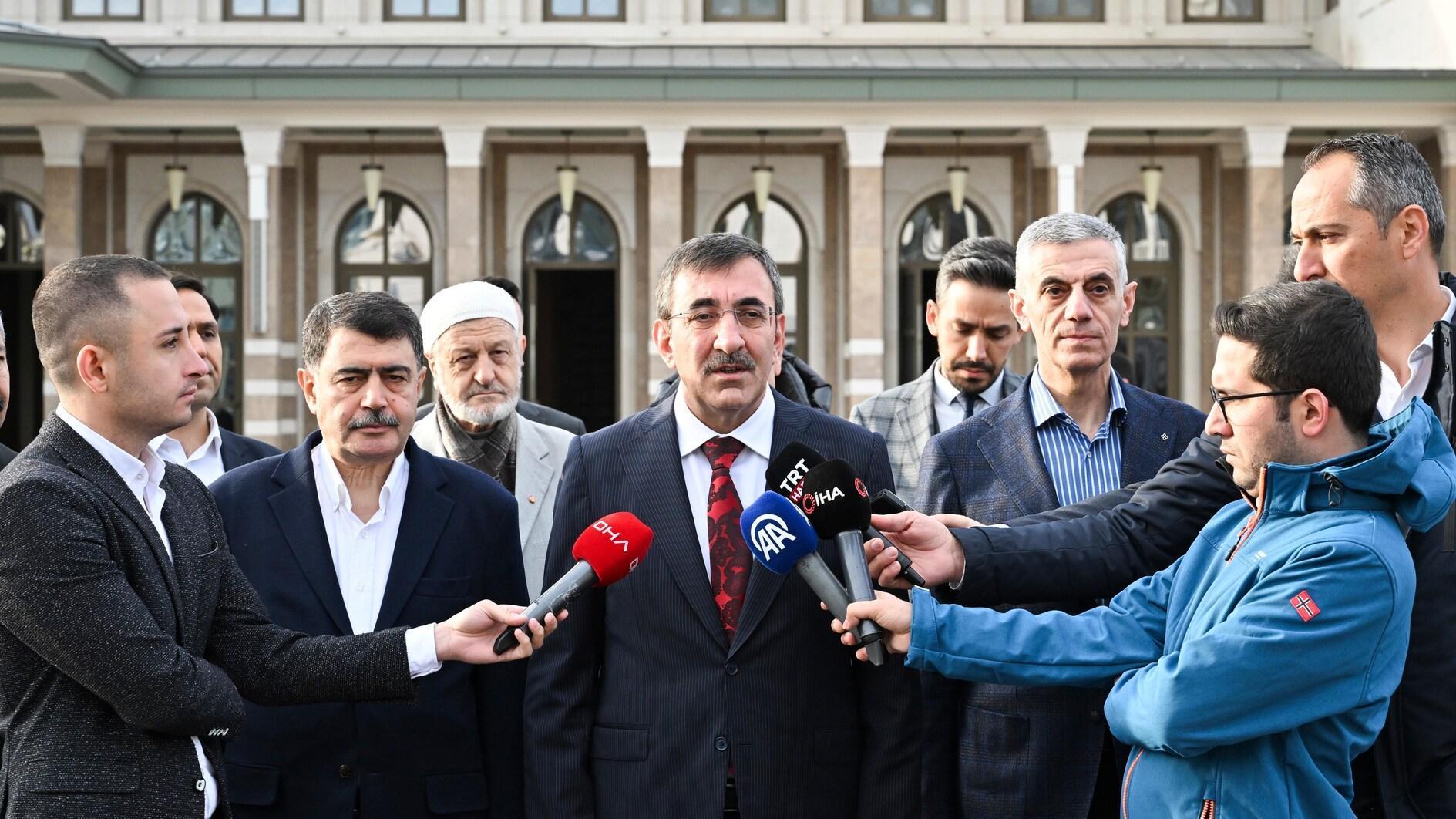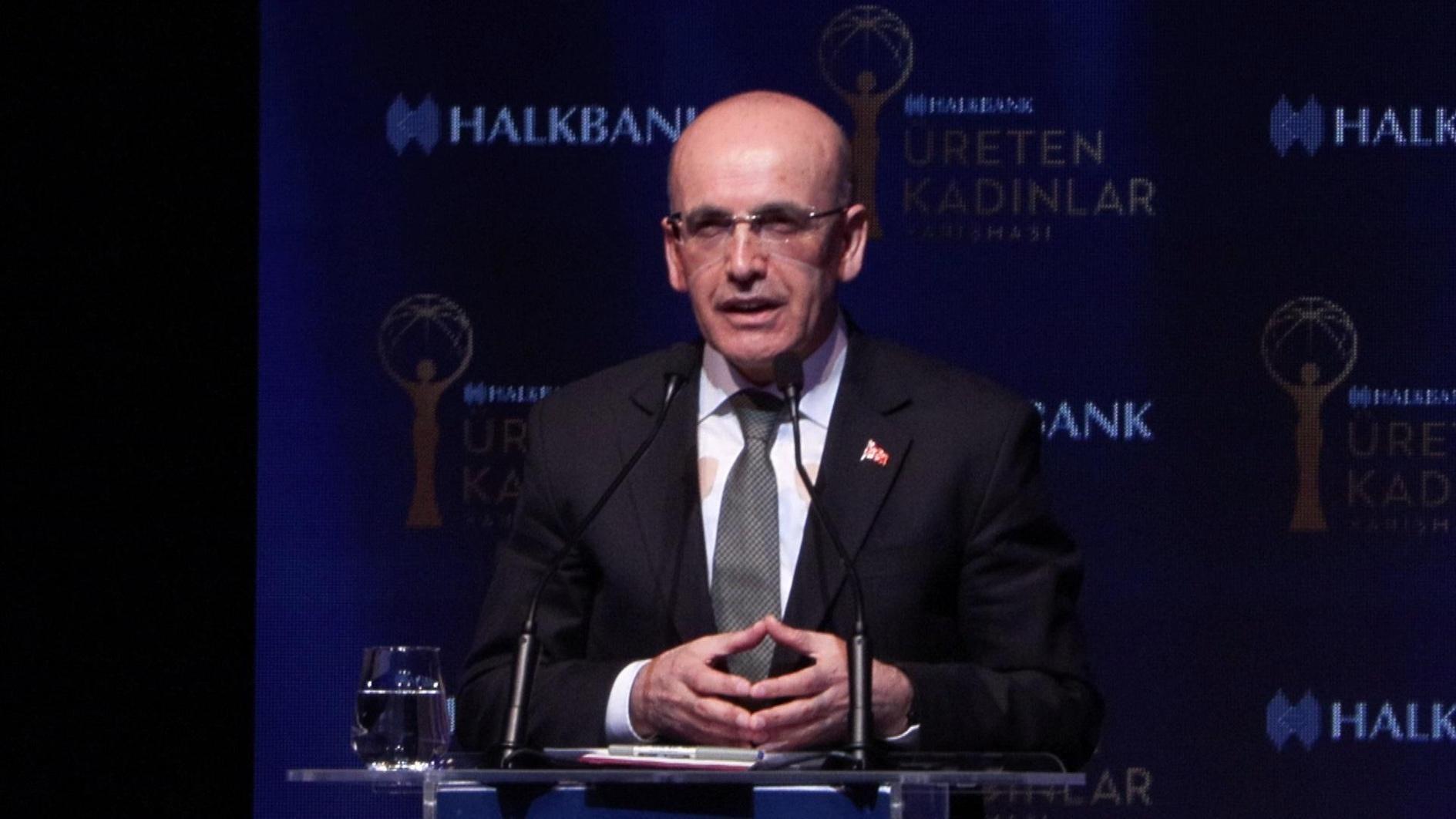Intelligence not immune to justice, say prosecutors
MEHMET ALİ BİRAND

Parliamentary debates on an amendment aimed at forestalling a probe into the intel service begins in crisis as the ruling party faces fierce objections from the opposition. DAILY NEWS photo, Selahattin SÖNMEZ
We have been dragging the public prosecutors through the mud for several days.A major portion of the media, including me, has written that it was a huge success for the National Intelligence Organization (MİT) to infiltrate its agents into the KCK, which is the Kurdish Communities Union, the alleged urban wing of the outlawed Kurdistan Workers’ Party (PKK). Not only the media but members of the ruling party also argued the prosecutors acted against the country’s interests by taking an MİT agent to court.
The primary source of surprise was that the undersecretary of MİT, a person whom the prime minister favors and trusts very much, was called to testify. Because this process was unprecedented, those who could not draw any conclusions generated conspiracy theories.
According to some, there was a settling of accounts between the [Gülen] community and the ruling party.
For some others, the police, by collecting evidence and activating the prosecutors, was using the judiciary to stop the MİT from gaining so much power.
I saw that nobody was asking, so I knocked at their door and talked to members of the judiciary and the prosecutors who were directly involved in the proceedings. I cannot give their names because we talked on the condition of anonymity.
They started the conversation by saying, “We are so surprised at the media. Why are they attacking us so much? We cannot understand.” They laugh at conspiracy theories. They are openly angry and believe they have been treated unjustly.
While they were explaining how the incident started and how it developed, their first words were as follows:
“We also know what the MİT is doing… We are also aware that Hakan Fidan is one of those people the prime minister trusts the most. Don’t you ask yourselves why these people [the prosecutors] walk out of their comfort zone, why they are taking the person the prime minister trusts the most into the agenda? Are we that naïve? It means that we have such evidences in our hands that we cannot ignore them…”
It is the MİT agents who commit the most number of crimes
The most important factor the prosecutors drew attention to was the MİT agents generally worked unattended without being held accountable. It was emphasized they have no limits within the framework of their mission and act in a very independent manner.
“… The state turns a blind eye to them. The PKK considers them to be ‘one of us.’ When the situation is like this, the agent wanders around very easily. They emerge among those who have committed the biggest number of crimes. They swarm alongside the border. Because they are uncontrolled, they are involved in incidents that mean crime to us… Will the police who catch the criminals free these when they catch them? When it is conveyed to us that they are committing crimes, should we overlook it?”
They continue as such: “If you are an MİT agent, if you have taken the risk and infiltrated into the organization, then you shouldn’t have been caught. We have not disclosed you. We have not found you and taken you out from where you were working. I am there prosecuting you because you were caught throwing a Molotov cocktail. Then, you should have been more careful.”
The list of crimes sent from the police to the office of the prosecutor is also a long one. When you see that list and when they ask, “What do we do now?” there is no ready answer.
One very interesting example for me was Öcalan’s letter that contained a series of scenarios including the Sincan raid being sent to the PKK by way of the MİT. Another one is the memorandum of understanding between Öcalan and the MİT delegation, in which Hakan Fidan was also a member. “Are these not crimes?” they are asking.
Hakan Fidan has not been accused – he was only invited to testify, they emphasize. “If you make such a memorandum of understanding, and if Öcalan’s orders are taken to the target by members of your organization, then I have a right to question you…,” they say.
Another phenomenon the prosecutors drew attention to is this: “Nobody is above the law. Nobody is immune. No corporation is taboo…”
“Well, when these data arrived in your hands, why didn’t you go to the MİT and say, ‘Brother, we are facing such and such a situation. What are these?’” If you had done so, then none of these would have been experienced. You were, in a way, going against state policies,” I asked them. They absolutely rejected this.
“We are [not in the habit] of knocking on the doors of other institutions to obtain information. Either it constitutes a crime and we initiate [relevant legal proceedings] or else it constitutes no crime, in which case we close the file... Mind you, we are not opposing the state’s Kurdish policies or anything. What we are doing does not go beyond [merely] bringing MİT staff who have committed crimes before the judiciary.”
“Have you informed the ministry and obtained permission?” I asked.
This question makes all of them uncomfortable.
They note the contradiction between talking about independence of the judiciary and questioning why no permission was obtained from the ministry.
“No, we did not ask the ministry, and rest assured we never will. This [place] functions in an exceedingly independent manner. You may have different perceptions perhaps, but the ministry cannot direct us...”
Sadrettin Sarıkaya has started this process and has taken it to the office of the chief prosecutor after it has reached a certain stage. He has not encountered any obstacles there. Sarıkaya is defined as a very honest, hardworking and enthusiastic prosecutor by those around him.
We talked all the above.
If I hadn’t reflected those to you, what I have written up to now would have been one-sided.
Well, who is right and who is wrong?
I think both sides are right. However, in between, obviously there was lack of dialogue, a difference of opinion on incidents.
















